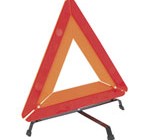Guest Post - Don’t let an accident at work bring you down
An on-the-job injury or accident can turn your entire world upside down. One day you’re simply following your normal routine, the next you’re forced to juggle your physical recovery, work responsibilities, and a growing stack of medical and other post-accident expenses. It can all be overwhelming, but try not to let your situation get the best of you. Learn how to deal with the emotional and financial troubles associated with on-the-job accidents and injuries in the following article.
Financial Implications
If you get injured on-the-job, you’ll begin to accumulate a number of expenses related to your accident. Medical and treatment bills are the most obvious (and often the most expensive), but you’ll likely incur additional travel and transport costs to get to and from your appointments as well. If you’ve been seriously injured, you may even have to hire people to assist you with chores or errands you once performed yourself. And, if you’re forced to take time off of work, you’ll often see fewer—or smaller—paychecks.
What To Do
During this time, you should keep copies of all receipts relating to your accident—from treatment to transportation costs—so that you can recuperate your losses through insurance or compensation claims later on. You should also carefully review your employee contract and your company’s health and safety policy to see what kind of statutory pay you are entitled to during your time off to help ease your financial burden.
Emotional Challenges
At-work injuries have emotional consequences, too. You may find that you are less fulfilled when your days aren’t occupied by work, and you may miss out on hobbies, pastimes, and pre-booked holidays as the result of your injury. Even if you had an amicable relationship with your employer pre-accident, he/she may become uncooperative or unsympathetic to your needs. These drastic changes to your everyday routine may cause you to feel helpless, lonely, or depressed.
What To Do
Make sure your at-work injury has been recorded in your employer’s “accident book.” Serious injuries and/or those that keep an employee from working for more than seven days must be additionally reported to the Health and Safety Executive. Following these simple HR procedures will be a huge help in the event that you need to file for accident at work compensation later on.
Try to work out any disputes with your employer verbally first. Here again, your employee contract or the company’s health and safety policy may come in handy if there is a disagreement about time off or statutory pay. If you cannot resolve the problem, try contacting Acas or the Citizen’s Advice Bureau for information and advice that will help you sort out the issue at hand.

Get in touch!